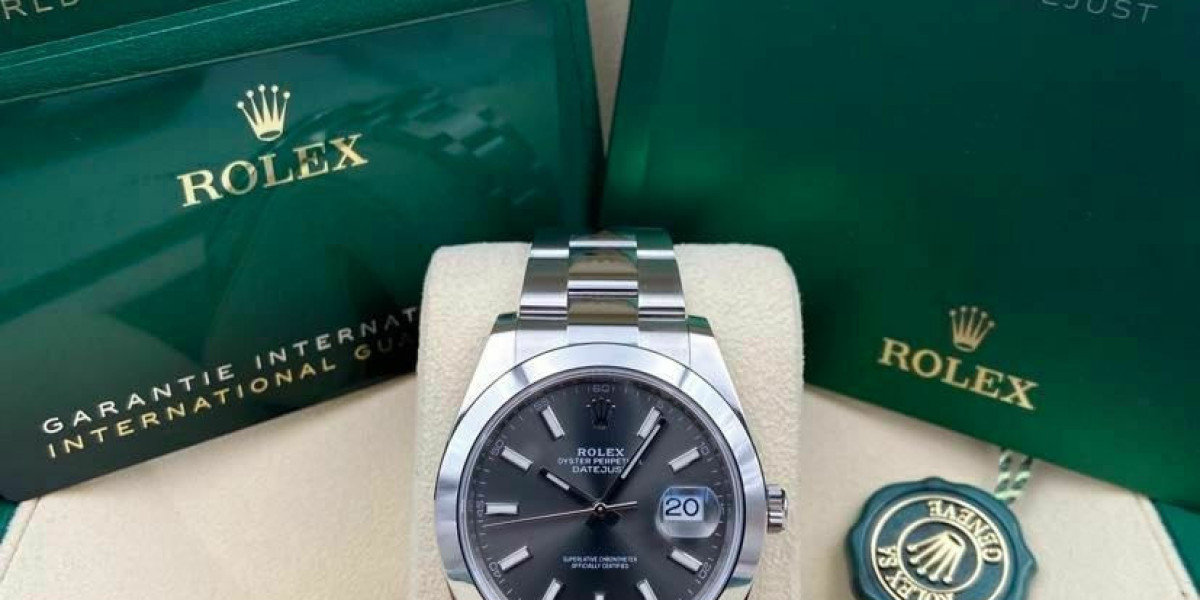Introduction
The world of luxury watches has long been a profitable market for counterfeiters. The allure of owning a high-end timepiece like a Rolex, without the hefty worth tag, has led to the proliferation of replica watches flooding the market. However, selling replica Rolex watches can have serious authorized consequences. In this article, we will talk about the authorized implications of promoting replica Rolex watches and why it is taken into account illegal.
Trademark Infringement
Certainly one of the first reasons why promoting replica Rolex watches is prohibited is because of trademark infringement. Rolex is a widely known and highly esteemed luxury watch model with a repute for producing high-high quality timepieces. The Rolex title, logo, and design parts are all protected below trademark law. By promoting replica Rolex watches, people and businesses are infringing on Rolex's trademarks, which is a violation of mental property rights.
Trademark infringement occurs when an individual or entity makes use of a trademark that is much like or similar to a registered trademark with out the permission of the trademark proprietor. In the case of replica Rolex watches, sellers are utilizing the Rolex identify, brand, and design features to deceive customers into believing that they're purchasing a real Rolex watch. This can cause confusion amongst customers and hurt the popularity of the Rolex brand.
Counterfeiting
Promoting replica Rolex watches can be thought-about counterfeiting, which is a criminal offense. Counterfeiting includes the production and distribution of goods that are exact replicas of genuine products, often with the intent to deceive consumers. Counterfeit Rolex watches might look almost identical to the actual thing, however they're typically made with lower quality materials and do not meet the identical requirements as genuine Rolex watches.
Counterfeiting not only harms the repute of the model being counterfeited but additionally undermines consumer trust in the marketplace. Counterfeit merchandise often don't undergo the identical rigorous testing and quality control measures as genuine merchandise, which may pose a threat to shoppers. In the case of replica Rolex watches, patrons might imagine that they are purchasing a genuine luxury watch when in reality, they are buying a counterfeit product.
Authorized Penalties
Promoting replica Rolex watches can have critical authorized penalties for people and companies involved within the counterfeit watch trade. Trademark infringement and counterfeiting are violations of intellectual property laws, which may end up in civil and criminal penalties. Rolex, like many luxurious manufacturers, actively enforces its mental property rights and takes legal action against sellers of counterfeit merchandise.
Penalties for selling replica ap watch (http://powergrab.info/shopping/are-replica-watches-worth-it-a-comprehensive-review) Rolex watches can include civil lawsuits, through which Rolex could seek damages for trademark infringement, as well as criminal fees for counterfeiting. In some instances, individuals found guilty of selling counterfeit items might face fines, jail time, or both. Businesses that sell replica Rolex watches could even be topic to legal action, together with injunctions to cease the sale of counterfeit products and payment of damages to the trademark owner.
Conclusion
In conclusion, promoting replica Rolex watches is unlawful as a result of trademark infringement and counterfeiting laws. By promoting counterfeit merchandise that bear the Rolex title, logo, and design elements without authorization, sellers are violating Rolex's intellectual property rights and deceiving shoppers. The legal consequences of promoting replica Rolex watches might be extreme, together with civil and criminal penalties. For these considering engaging within the commerce of replica luxury watches, it is vital to concentrate on the legal risks involved and to adhere to mental property laws.






